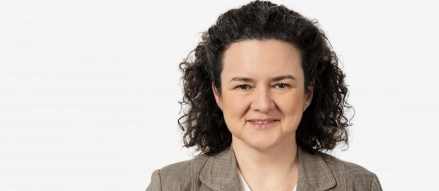
Indirect taxes in brief
Due to changes in the customs tariff, the Ministry of Finance submitted a proposal to amend Government Decree No. 361/2014 Coll., which specifies the goods and services subject to the domestic reverse charge regime in connection with the provisions of Section 92f of the VAT Act. The changes concern in particular the definition of metals, hafnium scrap, mobile phones and video game consoles to which this regime applies. If you apply the reverse charge regime to the supply of these goods, we recommend that you check whether the goods you supply are actually subject to this regime.
Tax implications of cryptocurrency transactions
Uncertainties in the tax assessment of cryptocurrency transactions should, at least to some extent, be eliminated by new related Information published by the General Financial Directorate. In addition to VAT, the Information also deals with corporate and personal income tax.
New conclusions ensuing from the negotiations of tax advisors and the financial administration
Within the framework of the platform of the “coordination” committees, where tax advisors have the opportunity to obtain a statement from the financial administration on the application of the tax in situations not explicitly addressed by the law, the following topics were addressed in relation to VAT during this year:
- early termination of a finance leaseback,
- early termination of energy supplies or failure to deliver the agreed quantity,
- application of VAT to selected financial leasing transactions,
- services provided by municipalities to authorised packaging companies and collective system operators,
- flat-rate compensation of costs provided to the employer pursuant to Section 270 (2) of the Code of Civil Procedure in the wording of Act No. 286/2021 Coll.
Review of the VAT exemption for electricity and gas in November and December 2021
The general pardon, which waived VAT on electricity and gas supplies in November and December 2021 in connection with the surge in energy prices, was cancelled as the review procedure confirmed its unlawfulness. However, this conclusion has no effect on the rights and obligations of VAT payers who were affected by this general pardon. Cancellation of the general pardon thus does not impose any obligations on VAT payers in relation to the previously applied waiver.
Exemption of VAT accessories for transport operators
Enterprises whose majority of income comes from the transport business are exempt from VAT accessories which relate to the period of February to August 2022. The waiver is subject to the notification of the field of business to the tax administrator and the payment of the amount of the tax to which the accessories relate by 31 October 2022.
Increase in turnover for VAT registration
The Ministry of Finance’s intention to increase the turnover for compulsory registration to CZK 2 million, which the entrepreneur achieves in 12 consecutive calendar months, is taking on a more realistic form. The specification of the amount of the turnover, which constitutes an exception to the EU VAT regulation, was approved by the EU Council. The related legislative proposal to amend the Czech VAT Act will be heard by the Government in the near future. The change is planned to come into effect on January 2023.
Temporary reduction of excise duty rates for fuel
In view of the rising fuel prices, the excise duty on mineral oils has been temporarily reduced. The excise rate has been reduced by CZK 1.5 per litre for petrol and diesel. The effect of the amendment, which is regulated by Act No. 131/2022 Coll., is limited to the period from 1 June to 30 September 2022. When changing the excise duty rate, attention should be paid to the correct indication of the amount of tax on the documents issued and to the proper management of the related records.
Changes in excise duties
While no major legislative changes are being planned in the area of value added tax, we will encounter a number of other amendments in the area of excise duties this year. In addition to the aforementioned temporary changes in mineral oil rates, there are changes effective from 26 April and from 1 July, which are the result of Act No. 93/2022 Coll. This amendment reflects the changes brought about by the EU's “alcohol and defence directive”. The main practical impact of the change is the possibility of applying reduced rates to cross-border supplies of alcoholic beverages (including wine and beer) in cases where the supplier is considered a small independent producer from the point of view of excise duties.
However, a substantial change will be brought by another amendment to the Excise Tax Act published under No 179/2022 Coll. The main changes will concern the transport of goods in free circulation between Member States, the tax regime of losses and the dispatch of goods. These changes are planned to be effective from 1 November 2022 and from 13 February 2023. In particular, the changes in the supply of goods in free circulation will affect a large number of businesses. We will inform you about these changes in the next issue. If you want to know something about the changes now, please contact us.
Author:
Pavla Polanská, Tax Manager
